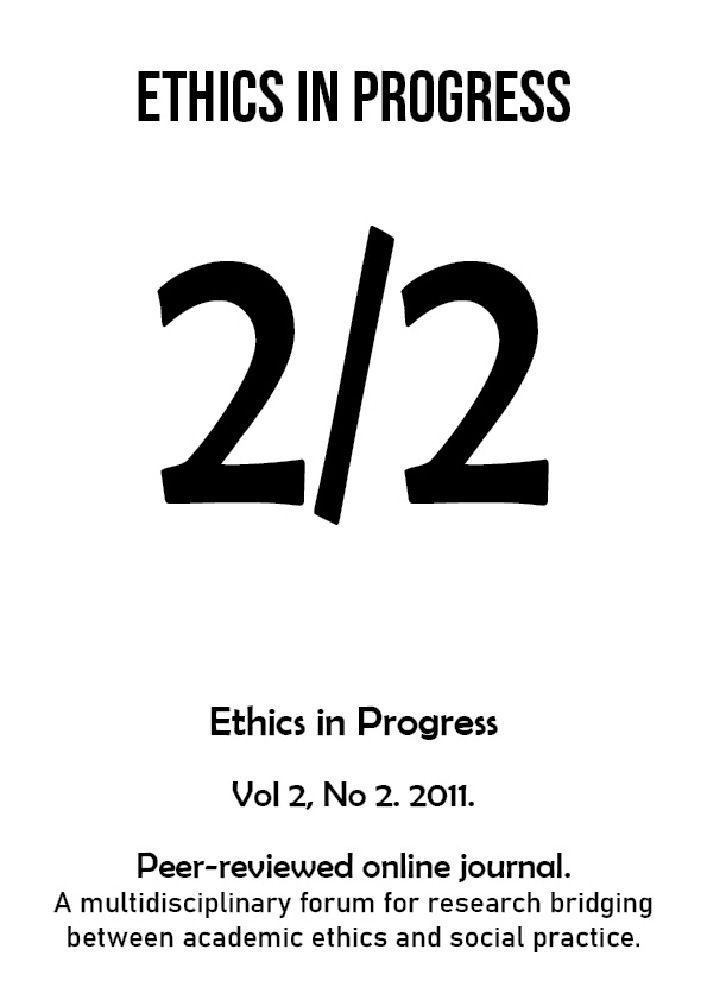Abstract
The present study was conducted as part of a larger study that aimed to compare moral judgment competence and moral preferences among Pakistani students of public and private sector educational institutes and religious institutes and also to measure the pattern of development of moral judgment competence of students within these institutes. The validation study completed in two phases, during the 1st phase data were collected from the students of grade 8 to 16 from public sector schools and colleges of Rawalpindi city. Very low mean c-score was observed (M = 13.60, SD = 9.05), the test came out to be valid on preference hierarchy criterion but its validity on the cognitive-affective parallelism and Quasi- simplex structure criteria could not be established due to low c-scores of the sample. In the second phase an additional sample from one private sector and two public sector universities was collected. The analysis of the combined sample (N = 246) showed no significant improvement of c-scores (M = 13.94, SD = 9.53). The test meets well the preference hierarchy criterion but on the other two criteria results remain inconclusive due to low variance in the sample. The low c-scores are explained on the basis of three assumptions; (1) poor quality of education, (2) dogmatic religiosity, and (3) weak and instable political structure of Pakistani society.References
Collby, A., & Kohlberg L. (1987). The measurement of moral judgment: Theoretical foundations and research validation (vol. 1, pp. 25-31). New York: Cambridge University Press.
Inayatullah, S. I., & Inayatullah, S. (1997). The futures of democracy in Pakistan: A liberal perspective [Abstract]. Futures, 29 (10), pp. 955-970. Retrieved April 23, 2011, from http://www.sciencedirect.com.
Iqbal, A. (2004) Problems and prospects of higher educaton in Pakistan (Doctoral Dissertaion, University of Arid Agriculture, Rawalpindi, Punjab, Pakistan). Retrieved April 6, 2011, from Pakistan Research Repository online database.
Khalid, T. (2004) Islamization in Pakistan: A political and constitutional study from 1947-1988 (Doctoral dissertation, University of Karachi, Karachi, Sind, Pakistan). Retrieved April 3, 2011, from Pakistan Research Repository online database.
Lind, G. (1978). Wie misst man moralisches Urteil? Probleme und alternative Möglichkeiten der Messung eines komplexen Konstrukts. In G. Portele, ed., Sozialisation und Moral. Weinheim: Beltz, pp. 171-201. Retrieved February 17, 2011, from http://www.uni-konstanz.de/ag-moral/pdf/Lind-1978_MUTin-Portele.pdf.
Lind, G. (1982). Experimental questionnaires: A new approach to personality research. A. Kossakowski & K. Obuchowski, eds., Progress in psychology of personality, pp. 132-144. Amsterdam, NL: North-Holland. Retrieved March 22, 2011 from http://www.uni-konstanz.de/ag-moral/pdf/Lind-1980_ExpQuest.pdf.
Lind, G. (1985). The theory of moral-cognitive development: a socio-psychological assessment. In G. Lind, H.A. Hartmann & R. Wakenhut, Eds., Moral Development and the Social Environment. Studies in the Psychology and Philosophy of Moral Judgment and Education. Chicago: Precedent Publishing, pp. 21-53. Retrieved February 15, 2011, from http://www.uni-konstanz.de/ag-moral/pdf/Lind-1985_et-al-Moral-Development.pdf.
Lind, G. (1986). Cultural differences in moral judgment competence? A study of West and East European university students. Behavior Science Research 20, pp. 208-225. Retrieved April 23, 2011, from http://www.uni-konstanz.de/agmoral/pdf/Lind-1986_Cultural-Difference.pdf.
Lind, G. (2000a). Review and appraisal of the moral judgment test (MJT). University of Konstanz. Retrieved December 3, 2010, from http://www.uni-konstanz.de/ag-moral/pdf/Lind-2000_MJT-Review-and-Appraisal.pdf.
Lind, G. (2000b). Moral regression in medical students and their learning environment. Revista Brasileira de Educacao Médica 24(3), 24-33. Retrieved April 22, 2011, from http://www.uni-konstanz.de/ag-moral/pdf/Lind-2000_Moral_Regression_in_Medical_Students.pdf.
Lind, G. (2000c). The Importance of Role-Taking Opportunities for Self-Sustaining Moral Development. Journal of Educational Research, 10, 9-15. Retrieved April 22, 2011 from http://www.uni-konstanz.de/ag-moral/pdf/Lind-2000_Selfsustaining-moral-development.pdf.
Lind, G. (2008). The Meaning and measurement of moral judgment competence: A dual-aspect model. In Fasko, Daniel, Jr. & Willis, Wayne, eds. (2008). Contemporary philosophical and psychological perspectives on moral development and education, pp. 185-220. Creskill, Hampton Press, Retrieved January 20, 2011, from http://www.uni-konstanz.de/ag-moral/pdf/Lind-2008_Meaning-Measurement.pdf
Lupu, L. (2009). Moral, lernumwelt und religiosität:Die entwicklung moralischer urteilsfähigkeit bei studierenden in Rumänien in abhängigkeit von verantwortungsübernahme und religiosität. [English Abstract], (Doctoral dissertation, University of Konstanz, Germany). Retrieved April 24, 2011, from http://kops.ub.uni-konstanz.de/handle/urn:nbn:de:bsz:352-opus-95865.
Nowak, E. & Lind, G., (2009) Mis-educative martial law: The fate of free discourse and the moral judgment competence of Polish university students from 1977 to 1983. Based on the paper presented at the annual conference of the Association for Moral Education in New York, 2007. Retrieved April 20, 2011, from http://www.uni-konstanz.de/ag-moral/pdf/Nowak-Lind-2009_Miseducative_law.pdf
Saeidi-Parvaneh, S. (2011). Moral, bildung und religion im Iran: Zur bedeutung universitärer bildung für die entwicklung moralischer urteils- und diskursfähigkeit in einem religiös geprägten land. [English Abstract], (Doctoral dissertation, University of Konstanz, Germany). Retrieved April 24, 2011, from http://kops.ub.uni-konstanz.de/handle/urn:nbn:de:bsz:352-opus-131079
Schillinger-Agati, M.,_& Lind, G. (2003). Moral Judgement Competence in Brazilian and German University Students. Paper presented at the Annual Meeting of the American Education Research Assotiation. Retrieved April 3, 2011, from http://www.uni-konstanz.de/ag-moral/pdf/Schillinger-Lind-2003_moraldevelopment-Brazil.pdf.
Shahzad, S. (2007). A study to investigate the quality of education at intermediate level in Punjab (Doctoral dissertation, University of Arid Agriculture, Rawalpindi, Punjab, Pakistan). Retrieved April 6, 2011, from Pakistan Research Repository online database.
The Constitution of the Islamic Republic of Pakistan, Article 227-1, Part IX, (2010). Retrieved April 24, 2011, from http://www.na.gov.pk/publications/constitution.pdf.
Willgerodt, M. A., Kataoka-Yahiro, M. Kim, E., & Ceria, C. (2005). Issues of instrument translation in research on Asian immigrant populations. Journal of Professional Nursing, 21, 231-239




